
The Docudays UA Film Festival Goes Digital Amid Coronavirus Outbreak
April 18, 2020
The 17th Docudays UA International Documentary Film Festival has relaunched as the online festival, following the closure of cinemas due to the coronavirus outbreak. The documentary festival was originally due to take place at Zhovten cinema and other cinemas around Kyiv. It will now be presented online on April 24 – May 3, 2020, with all films made available to audiences for free. The audience can demonstrate their support of the festival by paying any amount they wish to pay for the screening or buying festival’s merch.
The festival’s programme director Viktoriia Leshchenko confirmed that much of the festival’s content will be incorporated into the online event, which she hopes will reach larger audiences. “This festival is our act of solidarity with the global cultural community and a way to support our audience during the crisis. It is an instrument of personal reboot and communication with the world under the conditions of global isolation”, she noted.
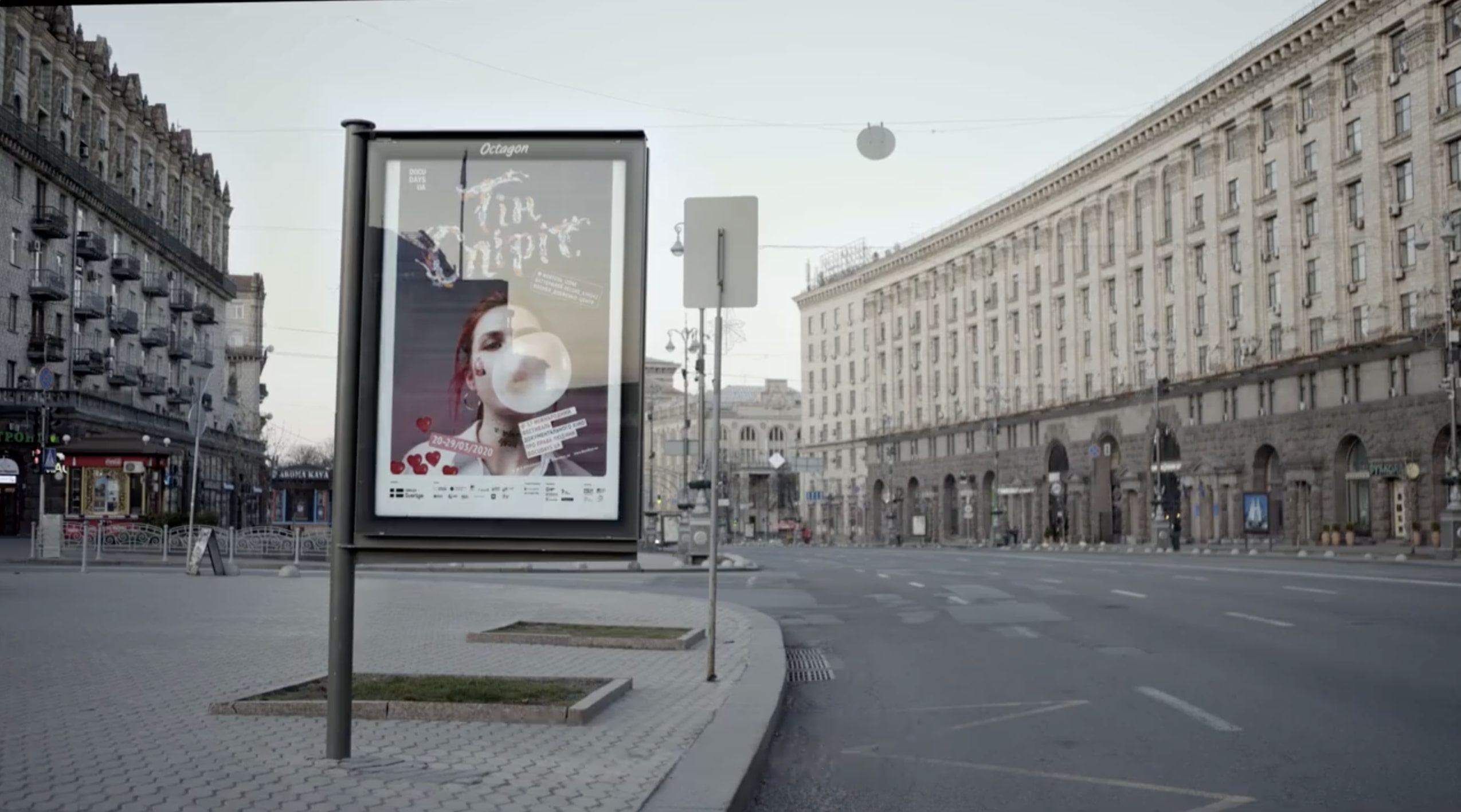
Founded in 2003, Docudays UA festival became the platform that showcased the brightest new voices in Ukrainian filmmaking, and played the educational role, presenting documentary cinema from all over the world.
The theme of 2020’s Docudays UA is “Teen Spirit”. The festival wants to explore the adolescence, focusing on children’s rights and how the voices of young people can be heard loud and clear in discussions of social issues. “Ukraine defines protecting childhood as its strategic priority. That is, a child is viewed as an object of protection, not as an agent with rights, which is reflected in the legislation and government policies. We want to promote actual inclusion of the Convention on the Rights of the Child in our government’s agenda”, organizers said in a statement.
online events
The virtual cinema, will broadcast over 70 festival films from the competition and non-competition programmes, most of which will be available between 24 April and 10 May, 2020. Films from the Docu/Ukraine programme will be available online for one day only. All the films will have English subtitles. To access the virtual cinema create the account at Docu/Space website. Due to the requirements of the films’ owners, the streaming will be available only in Ukraine.
The festival will feature 45 online broadcasts of discussions on human rights, lectures, conversations about life and cinema with the directors and film critics.
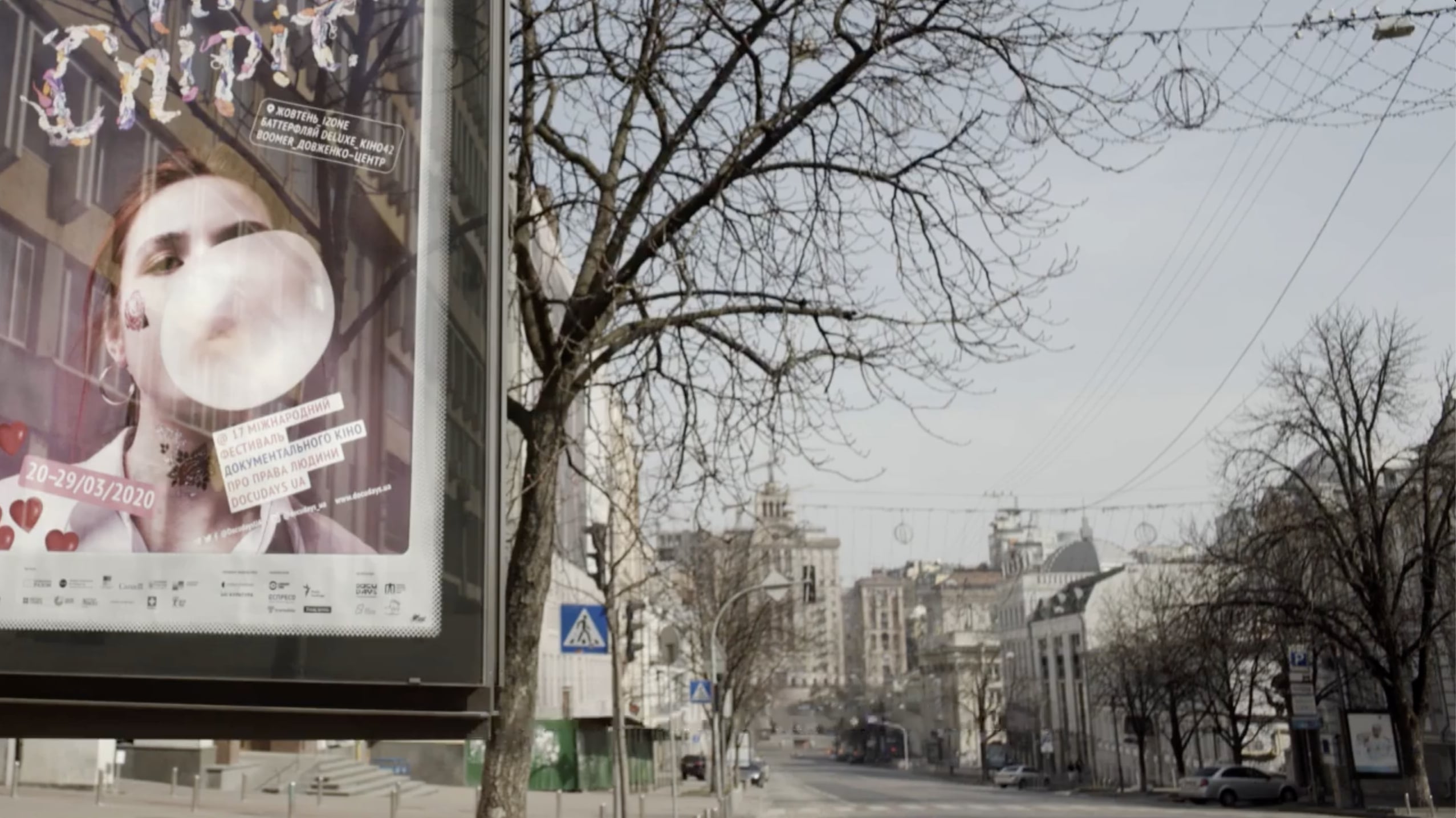
The Living Library interactive event will offer online visitors a chance to talk with the people who are often become the subject of prejudices and stereotypes in the society, among which are representatives of LGBTQ+, feminists and pro-feminist men, parents who support their lesbian daughter, dark-skinned people, people with disabilities, such as a blind journalist or an advocate in a wheelchair, activists working with the homeless, and others.
Teenagers from across Ukraine will be offered a chance to participate in the Online Documentary Studio, where under the mentorship of documentary filmmakers, they will create their own documentaries about life under quarantine.
Online events for the owners of industry accreditations will include the Ukrainian Doc Preview, a presentation of contemporary documentaries at the stage of production to film industry professionals; as well as Meet Professionals, a cycle of online meetings with international documentary experts.
8 Ukrainian films to watch at the 2020's Docudays UA Festival
The 2014 Ukrainian Revolution, occupation of Crimea, and the ongoing Russian-Ukrainian war have precipitated a sharp rise in Ukrainian documentary filmmaking, which have garnered considerable critical acclaim.
In 2020, the Docu/Ukraine national competition includes five feature-length debuts which are presenting the daily life of Ukrainian suburban trains, the story about Derzhprom building in Kharkiv, a pilgrimage to Zarvanytsia, the story of a family from Krasnohorivka in the “red zone” of Donbas, and everyday life of Ukrainian soldiers through their personal video recordings. There are also three Ukrainian short documentaries which were selected for participation in the competition of short films. All films will be screened in original language with English subtitles.
The Earth Is Blue as an Orange (2020) by Iryna Tsilyk
The winner of 2020’s World Cinema Documentary Directing Award at Sundance Film Festival, The Earth Is Blue as an Orange tells the story of the family, who experienced Russian-Ukrainian war firsthand, in a small city, which was located in the ‘red zone’ of Donbas, one of the most severely damaged by shelling. The family had to sleep in the cellar of their house every night, their neighbour’s house was destroyed by a mine and the local school was ruined. Despite all these circumstances, the protagonists remained positive and even tried to shoot films about the war by themselves.
Iryna Tsilyk is a Ukrainian filmmaker and writer. Her previous documentary short films for the Invisible Battalion film collection (2017) told the story of the women at war.
New Jerusalem (2020) by Yarema Malashchuk and Roman Himey
The film documents a pilgrimage of Ukrainian Christians to Zarvanytsia, a place in the west of Ukraine, which is considered to be sacred. Between prayers they share news, brag about their wealth, take pictures of chapels, give interviews, witness miracles. Witness miracles?
Yarema Malashchuk and Roman Himey are a filmmaking duo based in Kyiv. Since 2013, they have been working together on the edge of visual art and cinema as artists, film directors and cinematographers. In their work, they explore the image of the crowd as a separate character in history and culture. They were awarded the Special Prize at the PinchukArtCentre in 2018, the Grand Prix at the Young Ukrainian Artists Award (MUHi 2019).
Don’t Worry, the Doors Will Open (2019) by Oksana Karpovych
Shot over summer and winter seasons on the elektrychka, a typical Soviet commuter train that travels between Kyiv and several small provincial towns, Don’t Worry, The Doors Will Open invites us to share a ride with working-class, mostly marginalised passengers and vendors. Following a number of people and families from one grimy wagon to another, from station to station, we are immersed in their everyday struggles and learn about the dilemmas of building a new post-revolutionary identity. Don’t Worry, The Doors Will Open is an atmospheric and intensely human vérité portrait of Ukrainian society on the move.
Oksana Karpovych is a filmmaker born in Kyiv, living and working in Montreal since 2013. In her personal projects, Oksana explores how state politics invades the personal sphere and the influence it has on the communities she intimately documents.
The Building (2019) by Tatjana Kononenko and Matilda Mester
The documentary combines archival material and present-day footage to show the life of Derzhprom, the House of State Industry in the eastern Ukrainian city of Kharkiv. Built between 1925 and 1928, it was intended to embody the idea of Communism. The impressive cubist-constructivist building inspired several legendary artists, including filmmakers such as Dziga Vertov and Sergei Eisenstein, who used it in their films as a symbol of bureaucracy, or as a playground for the Man with a movie camera. The Building moves between classic, observational documentary and experimental cinema.
The German-Ukrainian film is directed by Matilda Mester and Tatjana Kononenko, with photography by Mester and Bruno Derksen.
War Note (2020) by Roman Liubyi
Personal videos from the phones, camcorders, cameras and GoPros of Ukrainian soldiers are woven into a surreal journey to the frontline of the war with Russia. The film shows a bizarre world whose laws are quite different from what we are used to. The behaviour is different, the relationships unfold differently and the humour takes on different notes. The heroes wake up and fall asleep, rejoice and cry, always feeling that the recording may end at any moment.
Roman Liubyi is a member of the Babylon’13, a documentary filmmakers collective, estated 2013 in attempt to highlight the struggle for democracy and human rights in Ukraine during Euromaidan revolution and Russian-Ukrainian war.
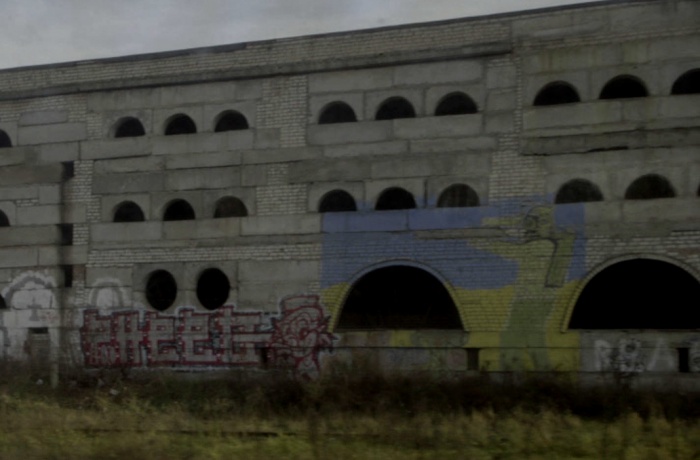
Circulation (2020) by Oleksiy Radynski
A three-year-long observation of Kyiv’s moving landscape, condensed into 10 minutes of screen time.
Oleksiy Radynski is a filmmaker and writer based in Kyiv. His previous documentary film Facade Colour: Blue (2019) explored the Save Kyiv Modernism initiative that was trying to protect the famous “Flying Saucer” building. Radynsk is a BAK Fellow at basis voor actuele kunst, Utrecht.
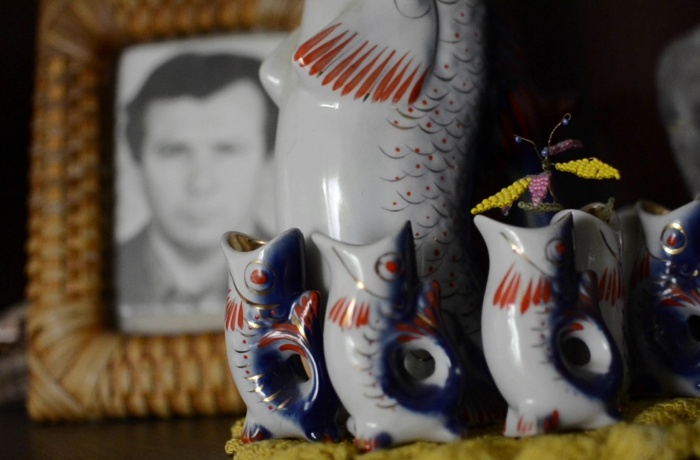
A Friday’s Monday (2020) by Ivanna Prokopchuk
Starting on Monday I… [end the sentence with your favourite resolution]! What if this would not have happened? What if this Monday has already turned into a Friday? A Friday’s Monday shows day-to-day life, cramped relationships, and the gendered communication of a modern family.
Ivanna Prokopchuk is a filmmaker based in Kyiv. She studied sociology and journalism at the Kyiv-Mohyla Academy. A Friday’s Monday is her diploma work and directorial debut. As a film director she is interested in critical and feminist approaches to making documentaries.
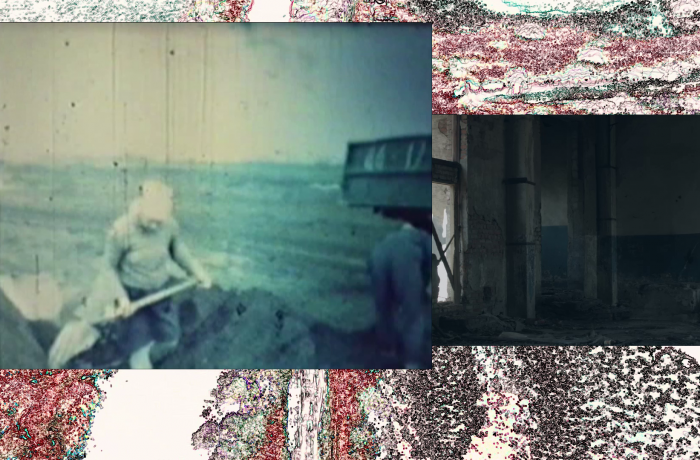
zong (2020) by Elias Parvulesco, Teta Tsybulnyk, Svitlana Pototska
The Zamglai nature reserve is one of the largest swamp systems in Ukraine. Its name probably derives from the Old Kurdish word ‘zong’ meaning ‘swamp’. We look at the phenomenon of the swamp from different perspectives: as a locus of fears in the folklore of agricultural societies; as an exploited landscape in the industrial age; as a complex system of ties between species within the posthumanist paradigm; and as a natural carbon sink reducing the greenhouse effect and countering climate change.
Elias Parvulesco and Teta Tsybulnyk are co-founders of ‘ruїns collective’, a Kyiv-based film union that embraces present-day methods of creating and distributing films independently.
